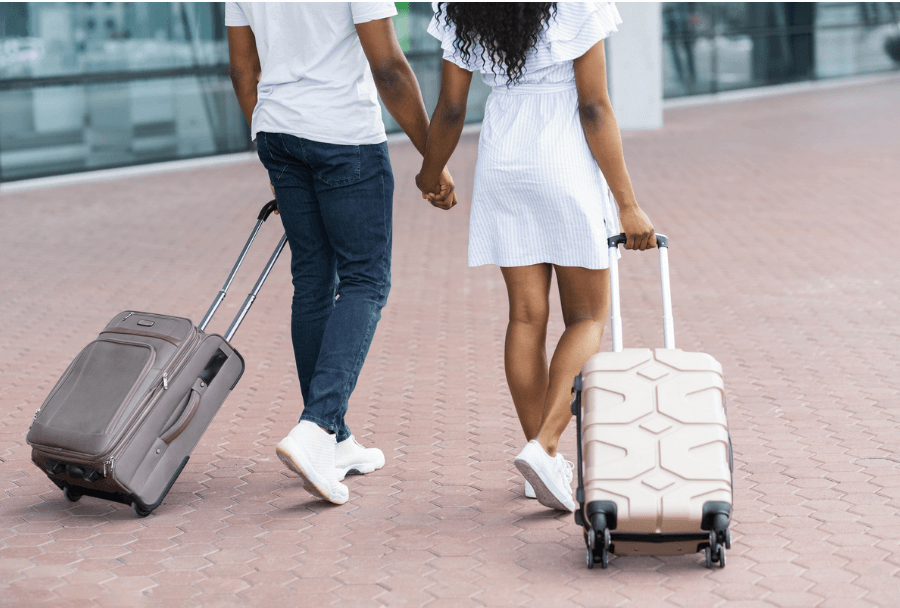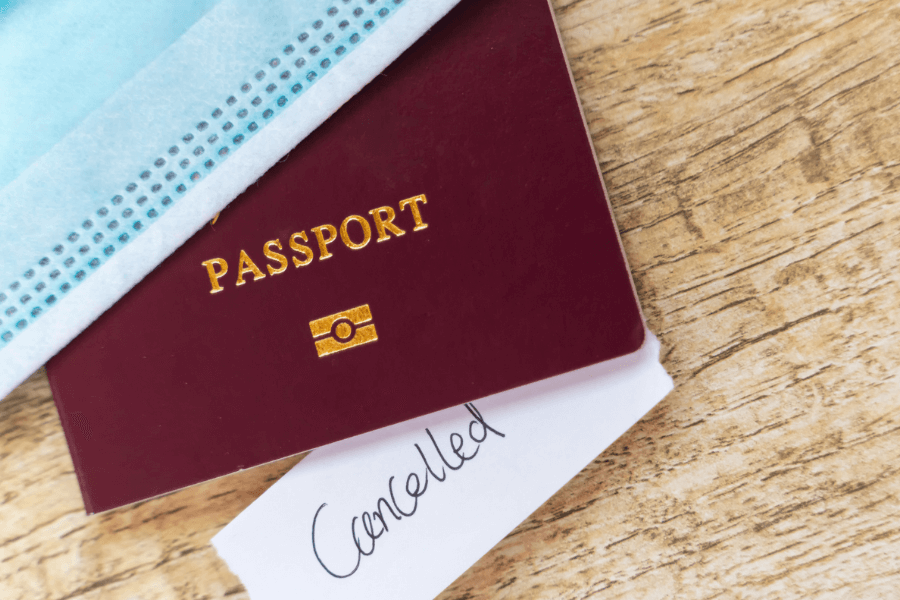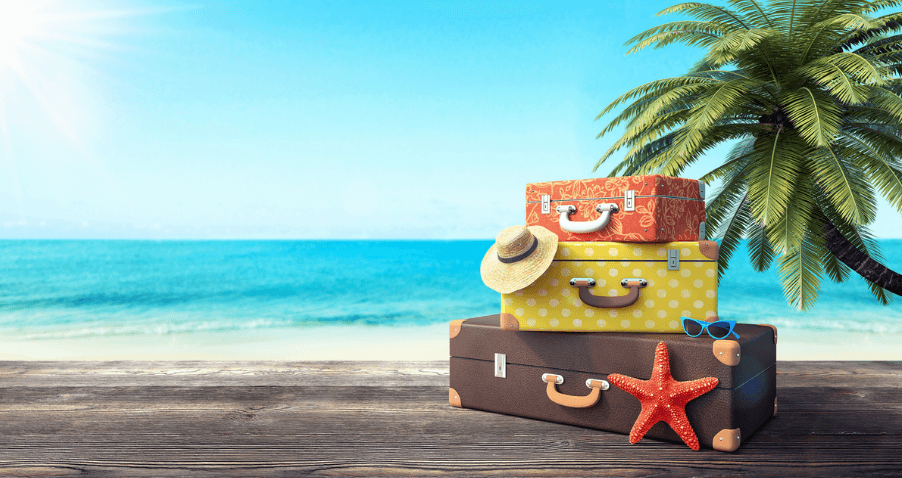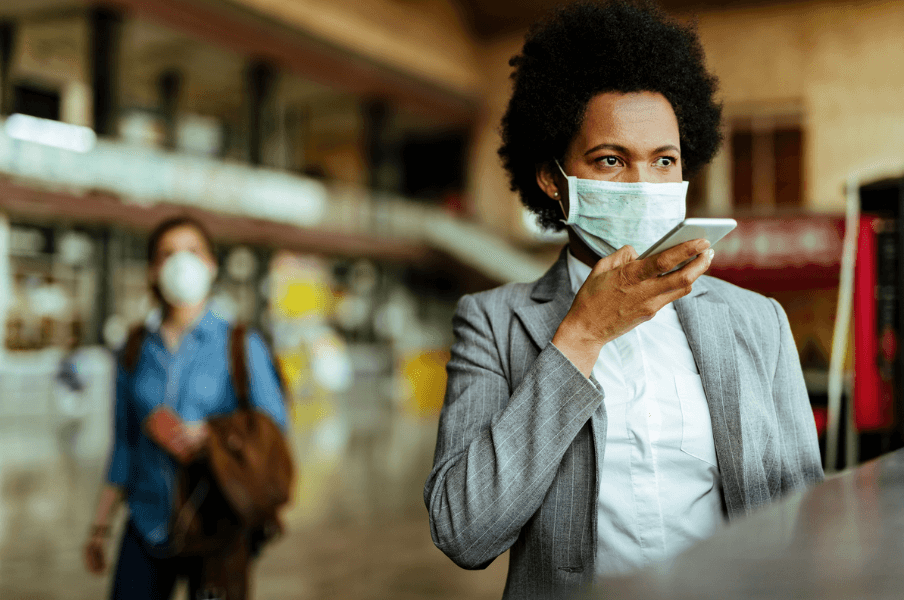In 2020, making travel plans is no longer a simple and straightforward process. In our new travel series with Omo Osagiede, co-founder of Hey Dip Your Toes In (HDYTI), the award-winning global travel and food platform, we hold your hand through the latest guidance and offer ideas of post-lockdown destinations to consider.

As borders cautiously reopen, international travel restrictions begin to be lifted across the world and governments express a desire to ‘save our summer’ holiday plans, we explore changing attitudes and how the world is learning to travel again.
There was a time not too long ago, some of you may remember, when making international travel plans amounted to simply scouring the internet for flight and accommodation deals, choosing a destination, getting vacation time approved by the boss, turning up and living your best life…RIP ‘#HotGirlSummer’.
Fast forward to the second half of this strange year that is 2020 and travel, and to be honest, life in general, as we knew it has changed considerably.
Gone are the carefree days of the impromptu weekend getaway to your favourite sun, sea and sand destination. Also gone are the days where you could “choose your own adventure” and decide to country hop around a particular destination simply because you had fallen in love with the place and because…why not?
“The entire travel economy and ecosystem – destinations, service providers and consumers – is being reshaped before our very eyes.”
Nowadays, that jauntiness has been replaced by cautiousness. The entire travel economy and ecosystem – destinations, service providers and consumers – is being reshaped before our very eyes.
The story is not that we are no longer interested in travel. Instead, we find ourselves in a world that is learning how to travel again. You’ve heard ample talk of a ‘new normal’. Well, we are living it.
Reshaping an entire industry
Following the decimation of services, jobs and revenue caused by the global pandemic, observers and analysts alike are still searching for answers about what the future of travel, tourism and hospitality could look like in the months and perhaps years to come.
In a UK YouGov survey conducted on 1 July, 2020, only 11% of respondents affirmed their intention to have a summer holiday abroad this year. Meanwhile, a whopping 77% indicated no plans to do so. That’s one end of the scale, a pessimistic picture no doubt.

On the flipside however, following almost four-months of lockdown, there is undeniable pent up demand for travel. In an example of demand outstripping supply, Ryanair had predicted that they would have 40% of their network back to operation by July. However, speaking to Travel Weekly recently, the airline’s chief executive Eddie Wilson said that they were already close to 70% capacity.
Whether people are travelling or not, it is certain that the way we travel will change. Post-lockdown, travellers can expect to be subject to a raft of different new guidelines, procedures and regulations across the travel value chain. This includes everything from the compulsory wearing of face masks to presenting test results before being allowed to fly to being subject to quarantine upon arrival in some destinations.
“Technology is stepping up to try to make us feel safer when we travel.”
Technology is stepping up to try to make us feel safer when we travel. In a recent article, Lina Zeldovich (BBC Travel) shines a spotlight on airport robots that greet you, read your temperature and test your breath for infection in the minutes before you fly or upon arrival at your destination. At different stages of development also are robots that sanitize trains, cruise ships and hotels using UVC light in minutes.
It is still too early to bank your money on predictions of how travel will look in future. What is certain however, is that the industry must learn to walk again before it can fly.
Reshaping borders – Destinations welcome you but…
In 2020, we’re seeing countries scrambling to restart their tourism industries (a significant part of their GDP for many) after unprecedented losses in revenue.
Countries such as New Zealand and Australia were among the pioneers of the concept of ‘travel corridors’ where only residents from one country are allowed to travel to the other and vice versa. Others, including the UK, have since announced expanded lists of countries from where inbound travel without a requirement to self-isolate upon arrival is allowed.
“… boundaries and borders remain in flux and are likely to continue to do so as destinations respond to changing rates of infection and updated government guidelines.”
However, in this new normal, boundaries and borders remain in flux and are likely to continue to do so as destinations respond to changing rates of infection and updated government guidelines. This will have an impact on travel decision-making in the near future.
For example, after the Spanish government announced plans to reopen their borders in July to European Union and Schengen-area countries, barely weeks later, the autonomous region of Catalonia shut down to deal with a new outbreak.
World famous attractions such as Disneyland have opened and then closed their gates within one month after new outbreaks in places such as Hong Kong and Florida.

On the positive side however, this could be a good time to visit traditionally exclusive destinations (if you can find flights) such as the Maldives and The Caribbean where, following announcements about phased reopenings, reduced capacity could mean rich rewards for risk-averse travellers.
Destinations like Cancun in Mexico’s Yucatan Peninsula are laying on the charm by launching a ‘Come to Cancun 2 X 1’ campaign. According to the Cancun Hotel Association, participants in the campaign could win two free nights for every two paid nights and flight ticket refunds if travelling with a companion.
Regardless of the enticements on offer, travel in 2020 is not a “set and forget” thing. When making plans, it is important to stay abreast of local, regional and international travel guidelines and have the ability to deal with sudden and unexpected changes.
Reshaping our attitudes – Having ‘The Talk’
We are all fed up of being confined behind computer screens and seeing the world through smartphones and Zoom. However, personal risk appetites and attitudes will determine how soon or whether we are at all ready to jet off into the sunset again.
While some are taking small and sustainable steps to plan staycations with friends and family, others are planning local (in-country) road trips while those who feel more comfortable flying are planning weekend getaways. Ibiza, Santorini anyone?
On a personal level, just like the travel corridors mentioned earlier, we are creating our own social bubbles. Before agreeing to meet up with anyone or make group travel arrangements, we are having “The Talk” with them.

We feel a responsibility to keep ourselves and others safe and so we discuss a handful of topics such as:
- Known family infections;
- Contact history over the two weeks prior to our trip or get-together;
- Knowledge of previous contacts who may have reported any symptoms; and
- Whether we have the ability to quarantine if anyone in our group should develop any symptoms during or after the trip.
It feels bizarre, but we feel that these are both necessary and responsible conversations to have.
While travel, tourism and hospitality operators can implement safety measures and while technology may provide some relief, in the absence of a vaccine, it is still down to personal risk appetite when deciding whether it is safe to travel or not.
In time we will feel more comfortable travelling again. Until then however, we encourage everyone to take the necessary precautions and to follow expert guidance from health authorities and travel operators as the world learns how to travel again.
Your ‘New Normal’ travel checklist
Planning to jet off this summer? Here are a few things to think about:
- Be honest about your own personal health situation. If you are susceptible to picking up infections, you might want to rethink travelling anywhere.
- Take a Covid-19 test as soon as possible to determine your current status.
- Do your research and ensure that you are up to speed with travel operator advice and local, regional and national health guidelines.
- Stock up on personal protective equipment – face masks, gloves, face shields, hand sanitizers – and everything you might need while travelling and while at your destination (e.g., when using local public transportation).
- Seek flexibility in booking policies from airlines, hotels and tour operators. Read the fine print on cancellations and refunds.
- Arrive early at airports (always a good thing to do even before the pandemic) to avoid long queues at check-in desks and security screening points.
- Do your research on travel insurance. Many providers have revised their cover in light of the current situation.
- Related to the above, have an emergency plan in case you need hospital treatment or need to quarantine suddenly.
- Practice social distancing. Avoid large crowds and confined, poorly ventilated spaces such as restaurants and bars.
- Ask your accommodation about their cleaning practices before booking, many should have details of their protocols on their websites.
- Respect other people’s personal space.
Omoruyi (Omo) Osagiede is a London-based writer, travel blogger and digital content creator. Omo’s work has been published in Lonely Planet, Culturs Magazine and House of Coco Magazine. As a blogger and digital content creator, his work can be found on heydipyourtoesin.com (travel, food and lifestyle) and protectme.blog (digital security).












